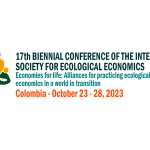Brussels, Belgium
June 15, 2011
Venue
Fondation Universitaire, Rue d’Egmont, 11, Brussels, Belgium
Organizers
The Trans-European Policy Studies Association (TEPSA), Brussels, Belgium
Institute for International Relations (IMO), Zagreb, Croatia
Ministry of Foreign Affairs and European Integration of the Republic of Croatia
Konrad-Adenauer-Stiftung (KAS) Brussels, Belgium
Background
Croatia entered decisive period of its EU accession process and should conclude negotiation with the EU this year, during the Polish EU Presidency at the latest. The experience of Croatia’s EU accession is very much unique, since it will be the first country after Greece to access the EU alone. Croatia is the first Stabilization and Association Process (SAP) country that will be entering the EU; therefore this entire process has vast importance both for the EU as for the broader region of the South-Eastern Europe (SEE). Finalization of Croatia’s accession negotiations shows that the EU clearly continues with its enlargement policy “the most successful EU foreign policy”. In this process Croatia serves as “role-model” for the rest of the SEE region in increasing their reform efforts. In Croatia itself the EU accession process resulted in transformative effects which strengthened democracy, the rule of law and market-economy. These reforms paved the way for successful functioning in the EU which will carry additional challenges and opportunities.
Aim of the Conference
The purpose of this conference was to assess lessons of Croatia’s EU negotiations and to discuss perspectives of Croatia’s functioning in the EU as the 28th EU member state. Croatia negotiated its accession under the new EU enlargement policy introduced in late 2005 that established new negotiating framework with the increased conditionality. This policy-change has been accompanied with the triple-crisis at the EU level; institutional crisis related to the entering into force of the Lisbon Treaty, the “enlargement fatigue” after the fifth EU enlargement wave and finally the economic crisis which also provoked the euro-crisis. This caused unfavorable context in which Croatia’s EU negotiations have been placed. Still, despite these circumstances Croatia managed to finalize its accession negotiations. In this process it collected new experiences and knowledge which should be shared with all interested actors. These experiences are particularly relevant for the countries of the SEE region which are still in initial phases of their accession processes.
Regarding functioning as the EU member states, accession to the single market of 500 million people, the world largest trading block, and being part of the global political power will produce change in all Croatia’s policy domains. However, full utilization of this new potential depends on the expertise and proficient knowledge in various EU sectoral policies between different tiers of government and among different stakeholders in society at large. Finally, the conference focused on the fact that successful participation in the EU policy-making requires proactive approach, in order to secure desired policy-outcomes at the EU level.
Conference gathered experts, high-level government officials, representatives of the European Commission and the European Parliament, representatives of the academia and other relevant stakeholders interested in the Croatia’s and the overall EU accession process.
Contact
The Trans-European Policy Studies Association (TEPSA), Brussels, Belgium
DOWNLOADS
CONTACT
The Trans-European Policy Studies Association (TEPSA),
Brussels, Belgium






